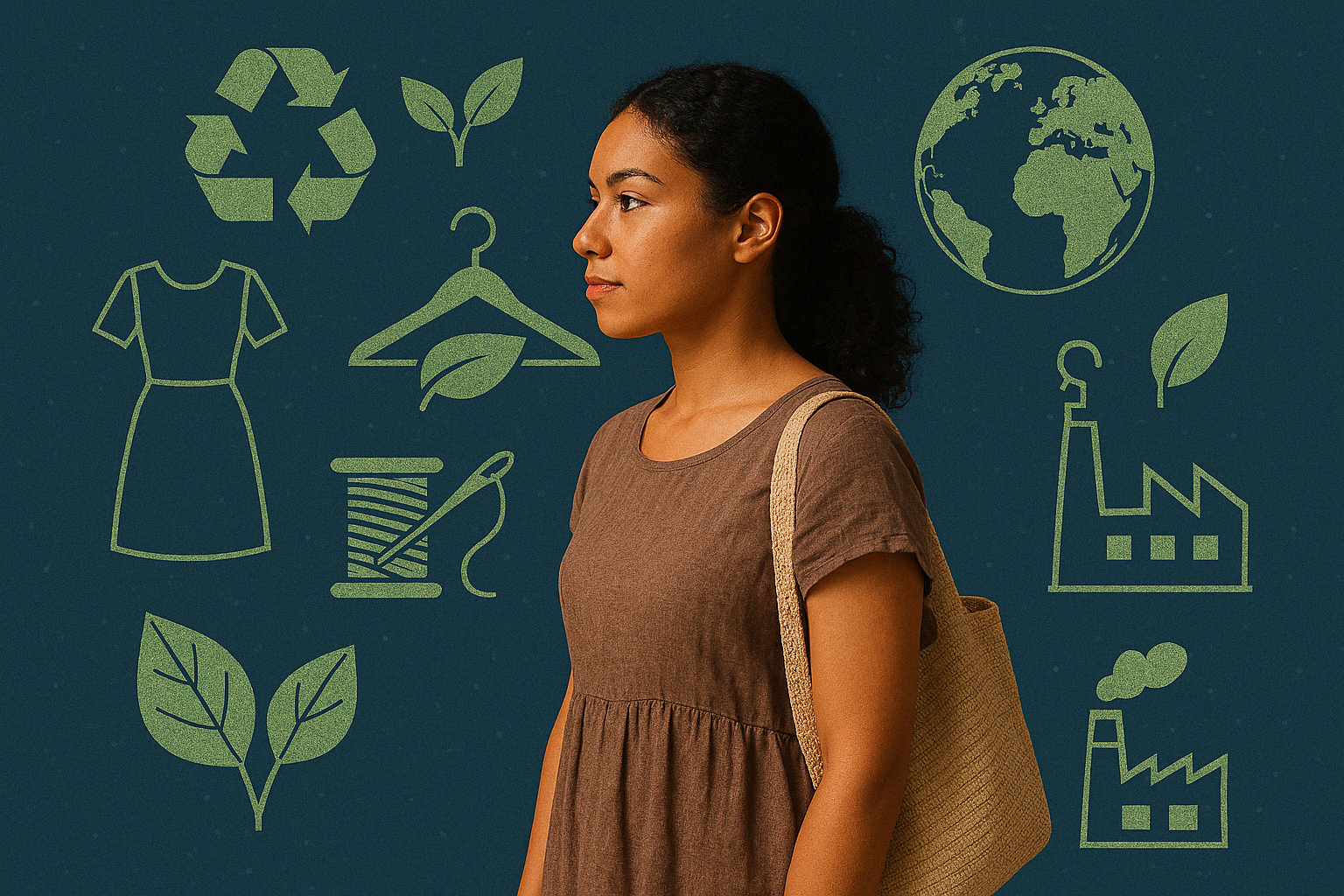
As the world embraces a greener tomorrow, 2025 has emerged as a landmark year in the fashion industry. The buzzword on every designer’s lips? Eco-couture — a blend of high fashion and sustainable ethics. This new wave of style is not only transforming wardrobes but also reshaping how fashion is produced, consumed, and celebrated.
What is Eco-Couture?
Eco-couture represents the fusion of luxury fashion with sustainable practices. Unlike fast fashion, which often sacrifices environmental and labor ethics for volume and speed, eco-couture is all about craftsmanship, conscious materials, and ethical production chains. In 2025, this concept is leading fashion forward — from the runways of Paris to the digital storefronts of emerging designers.
Key Sustainable Fashion Trends in 2025
1. Upcycled Fashion Goes Mainstream
No longer niche, upcycled fashion is having a major moment. Designers are reworking vintage textiles, deadstock fabrics, and even discarded clothing into high-end pieces. The charm lies in the uniqueness — no two pieces are ever the same. Brands like Marine Serre and India’s own Doodlage are championing this trend globally.
2. Plant-Based & Bio-Fabric Materials
2025 is witnessing a boom in plant-based fabrics such as hemp, bamboo, organic cotton, and banana fiber. Even more futuristic are bio-fabrics made from mushroom leather (mycelium), pineapple leaves (Piñatex), and lab-grown spider silk. These innovations drastically reduce the carbon footprint of fashion and eliminate the need for animal-based materials.
3. Minimalist & Timeless Designs
Fast fashion’s short-lived trend cycles are being replaced by timeless, capsule wardrobes. Consumers are investing in fewer but higher-quality pieces that last longer and remain stylish across seasons. The motto for 2025? “Buy less, choose well, make it last.”
4. Slow Fashion & Local Artisanship
Slow fashion is thriving, with a renewed focus on handmade, artisan-driven clothing. In India, regional crafts like Chikankari, Kalamkari, and Khadi weaving are seeing a revival through sustainable labels. Supporting local not only reduces shipping emissions but also preserves centuries-old craftsmanship.
5. Digital Fashion & Virtual Try-Ons
Surprisingly, even tech is going green in fashion. Virtual clothing collections for the metaverse and AR-powered virtual try-ons are minimizing waste by reducing the need for physical samples and returns. Fashion houses are collaborating with digital artists to create stunning, wearable NFTs and virtual outfits.
Why Sustainable Fashion Matters More Than Ever
The fashion industry is responsible for approximately 10% of global carbon emissions and is the second-largest consumer of water. In 2025, brands and buyers are waking up to the fact that sustainability is no longer optional — it’s urgent.
Consumers are increasingly eco-conscious, demanding transparency, fair wages, cruelty-free processes, and environmental accountability. Fashion brands ignoring this shift risk being left behind.
The Role of Gen Z and Conscious Consumers
Gen Z is at the forefront of this revolution. With a strong digital voice and a desire to make ethical choices, this generation is pushing brands toward inclusive, transparent, and planet-friendly practices. From thrift shopping to DIY upcycling, their buying behavior is reshaping the retail landscape.
Influencers and celebrities are also amplifying the message. Red carpets now showcase sustainable gowns, and fashion magazines highlight eco-styling tips. Green is officially glamorous.
Eco-Couture in India: A Growing Movement
India, with its rich textile heritage and skilled artisans, is uniquely positioned to lead the eco-couture movement. Homegrown brands like Okhai, B Label, and Anavila are blending traditional techniques with modern aesthetics, all while staying eco-friendly.
Fashion weeks in Mumbai and Delhi are increasingly featuring sustainable collections, while government initiatives are supporting natural fibers and ethical production.
Tips to Embrace Sustainable Fashion in 2025
Whether you’re a fashion lover or a curious consumer, here are simple ways to go green with your wardrobe:
- Choose natural and organic fabrics over synthetics
- Support ethical brands that disclose their production processes
- Buy second-hand or swap clothes with friends
- Repair, reuse, and restyle before discarding
- Educate yourself on fashion’s impact and advocate for change
Final Thoughts: The Future is Fashionably Green
The rise of eco-couture in 2025 marks more than just a trend — it signals a deeper shift in mindset. Fashion is becoming a tool not just for self-expression, but for activism, innovation, and sustainability.
As consumers, designers, and brands continue to make conscious choices, the dream of a cleaner, kinder, and more stylish planet feels closer than ever.
Read More news related ti fashion, health and recent news at Newskites24





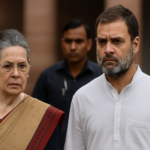


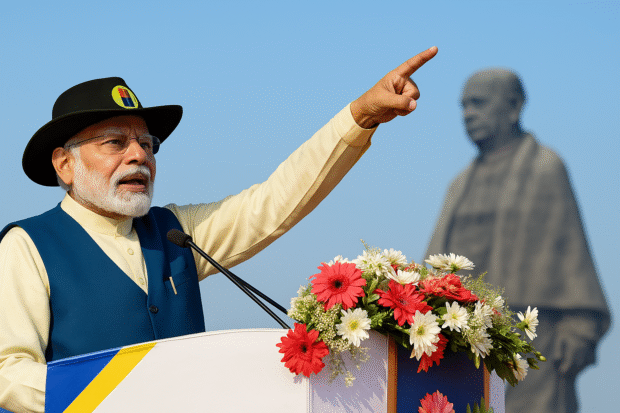

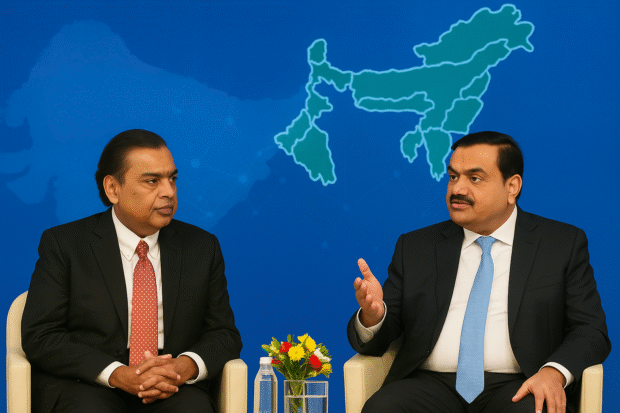
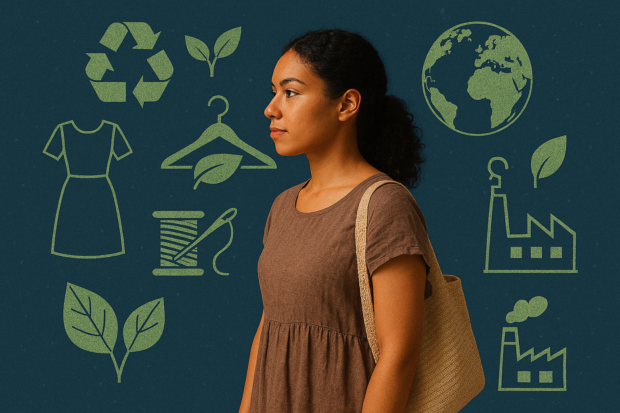

Be the first to leave a comment